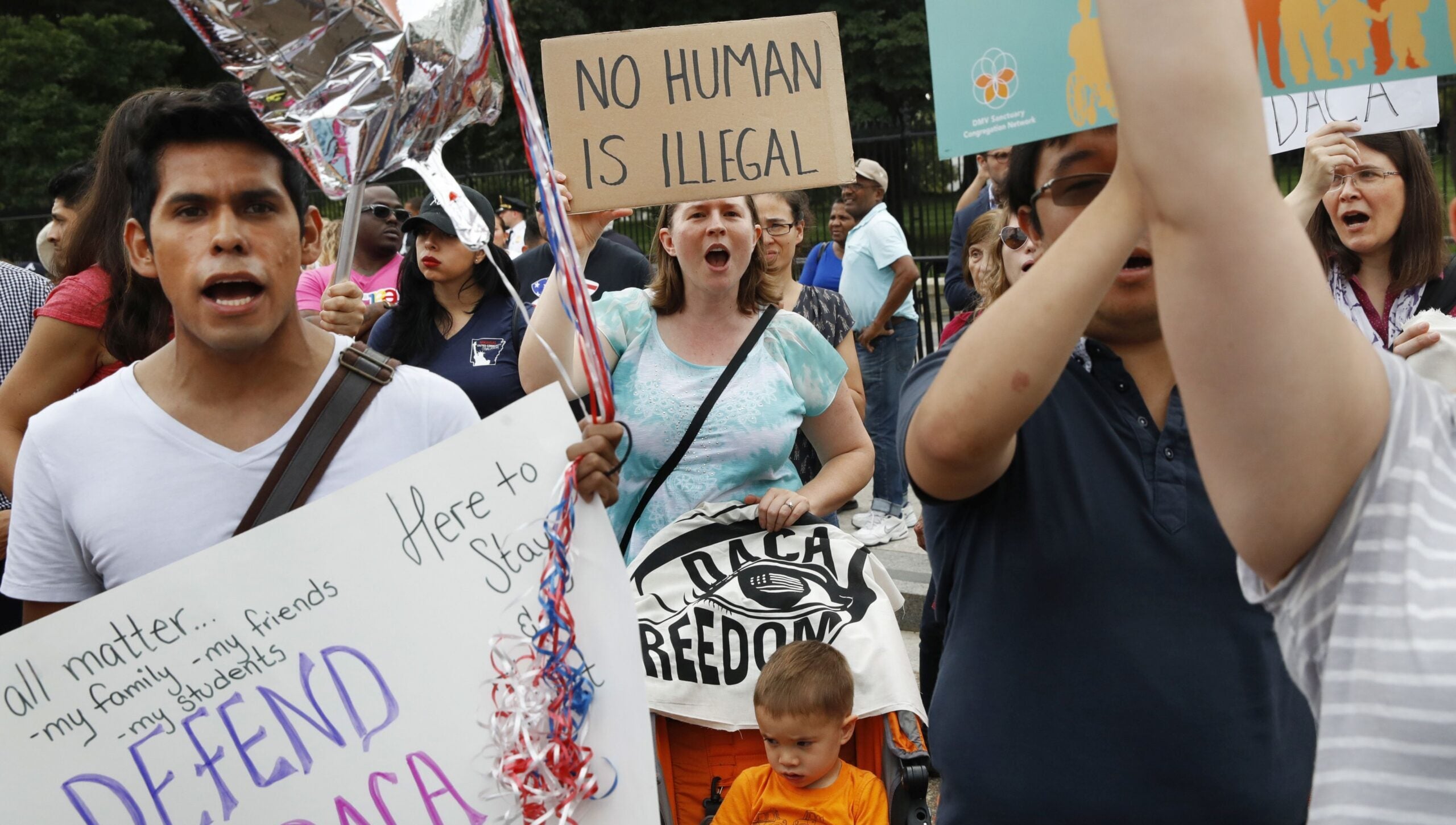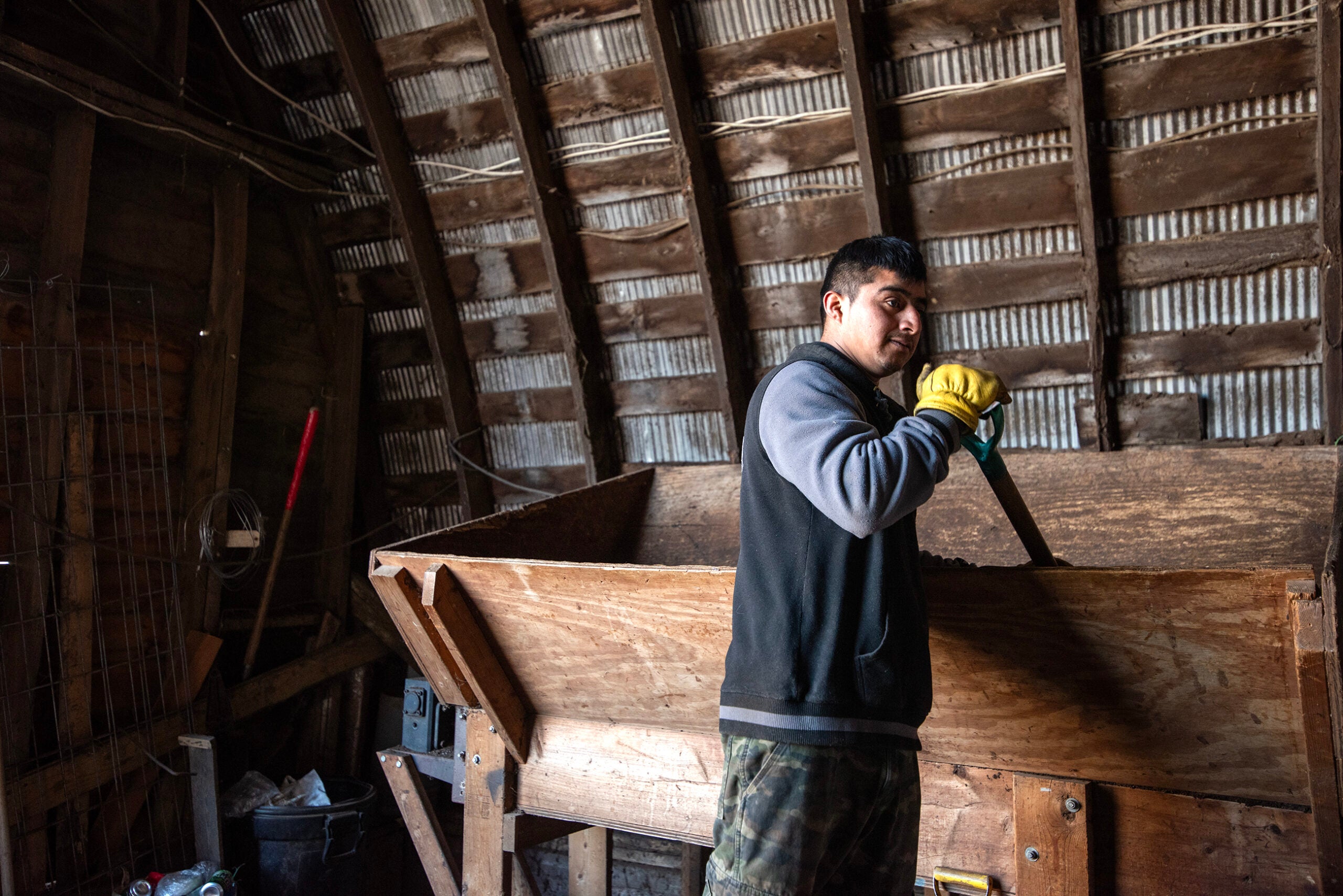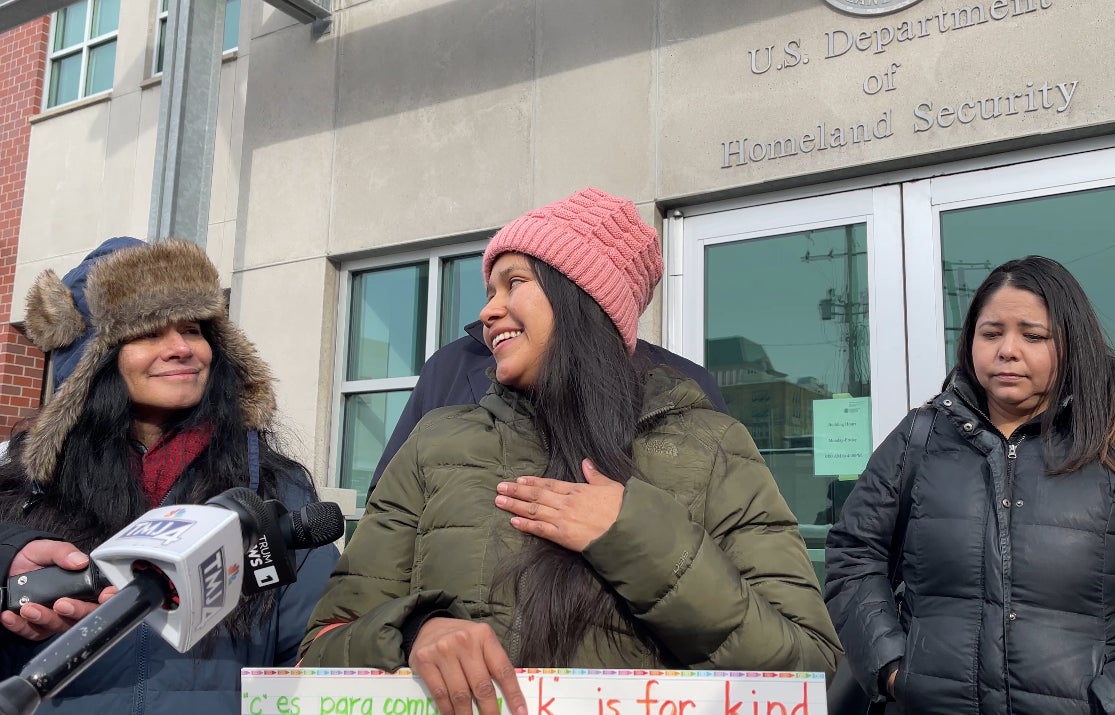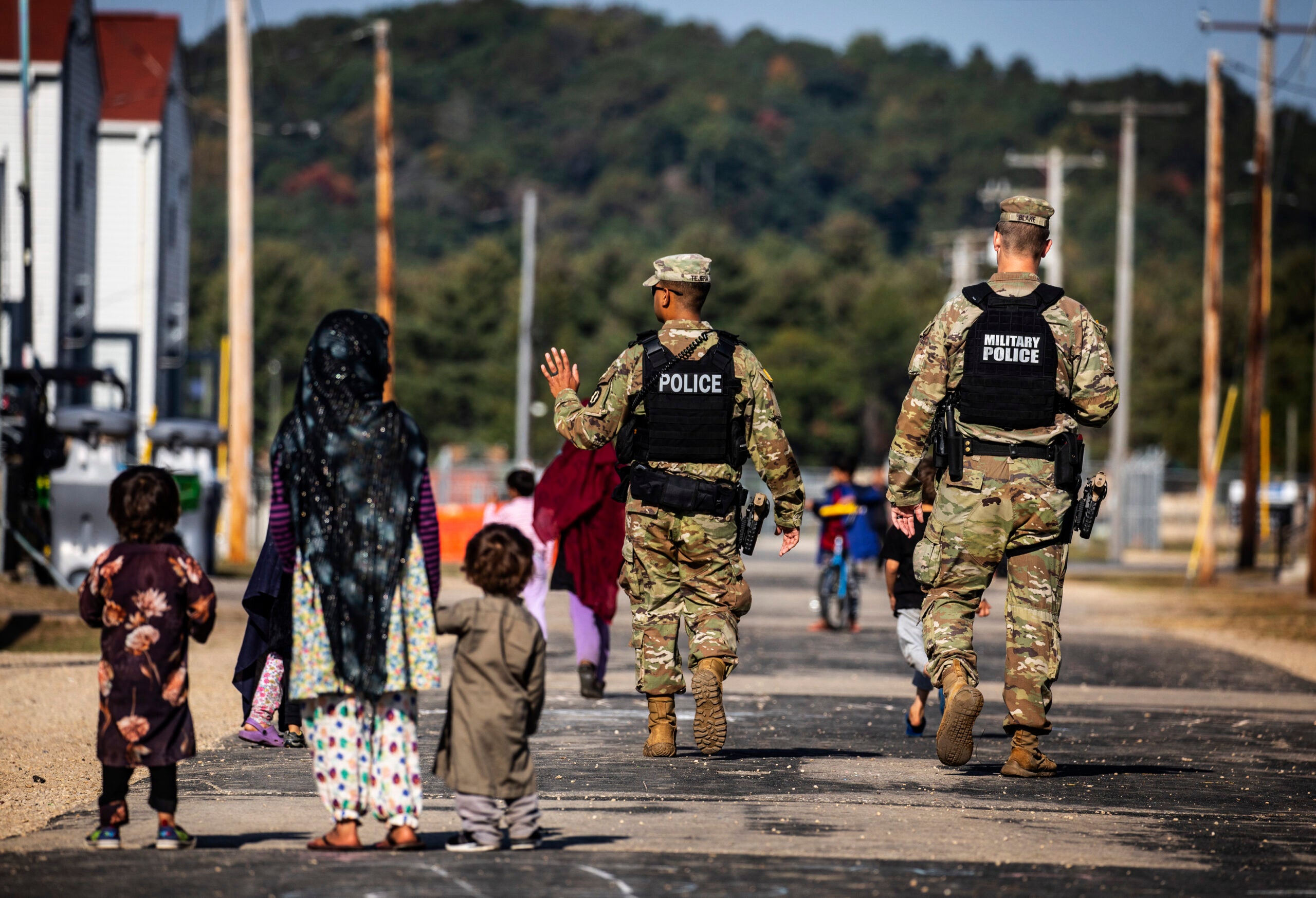Fernanda Jimenez, a 24-year-old Racine resident, came to the United States from Mexico with her mother and siblings when she was just 5 years old. It’s the only home she can remember.
For almost a decade, Jimenez has been protected from deportation by the federal Deferred Action for Childhood Arrivals, or DACA, program, launched under the Obama Administration. The program allows people who came to the country illegally as children to get work permits and continue living in America.
Earlier this year, Jimenez graduated from Alverno College in Milwaukee. She currently works as a grant writer, helping nonprofits apply for funding. But she’s also in the process of applying to law school.
Stay informed on the latest news
Sign up for WPR’s email newsletter.
“I like helping nonprofits get funding to do the work that we need in our country and especially our communities, but I’m more passionate about community organizing,” she said. “I’d like to eventually use legal skills after law school for community organizing.”
Jimenez has big dreams, but she says she’s been feeling a looming anxiety since former President Donald Trump won his bid to return to the White House in this year’s presidential race.
She was still in high school when Trump was first elected in 2016, but she says she still remembers feeling “terrified” about what his election would mean for her parents who don’t have permanent legal status and what it would mean for DACA’s future.
Those fears have come roaring back in recent weeks.
“Our community is terrified. They’re uncertain of their futures, they’re concerned for their family members who are undocumented and not protected under DACA,” Jimenez said. “A lot of naturalized citizens are concerned as well. The mass deportation threat is being taken seriously.”
On the campaign trail, Trump promised to lead the largest deportation effort in U.S. history. Shortly after the election, he announced that Tom Homan, former acting director of the U.S. Immigration and Customs Enforcement, would serve as his administration’s “border czar.”
In interviews with Fox News last week, Homan said he would prioritize deporting people who threaten public safety or pose risks to national security. But he also told the network that anyone in the country illegally is “not off the table,” and the administration would perform workplace immigration raids.

Immigrants rights group plans organizing efforts
Following Trump’s reelection, Voces de La Frontera, a Milwaukee-based immigrants rights group, has been holding community meetings in Green Bay, Milwaukee and Dane County to plan next steps, according to Christine Neumann-Ortiz, the organization’s founding executive director.
She said many of the immigrants in Wisconsin without permanent legal status are fearful of the prospect of mass deportations, but she doesn’t believe they will leave the country preemptively. Rather, she said they may leave Wisconsin for states that provide more protections to immigrants.
Neumann-Ortiz said Voces is using the regional meetings to brainstorm ways it can organize around protecting immigrants without permanent legal status. She said they plan to raise awareness through mass strikes, protests and civil disobedience.
“We really are going to have to very strongly be a movement that stands for human decency, solidarity, and we’re going to have to do that in the streets,” she said.
Neumann-Ortiz also said she believes most Trump voters cast ballots for him because of economic concerns, not because they wanted to see people forcibly removed from their communities.
“I do think as things unfold, there’s going to be shock waves that are going to happen that are going to have many people open their eyes, regret their decisions and see what they can do to help,” she said.
David Najera, Hispanic outreach coordinator for the Republican Party of Wisconsin, does not share the concerns about mass deportations.
“My parents came from Mexico and Texas. They came the right way, and that’s the way I’d like to see people come,” he said.
Najera said he supports Trump’s immigration policies, citing concerns about crime, infectious disease and government resources.
“The immigrants are just overwhelming the hospitals, schools and everything else, and taking our tax money,” Najera said. “I’m not saying they’re all bad, but there’s a majority of them that are just getting out of their jails over there in different countries, and coming here with bad intentions.”
Multiple studies have shown immigrants are less likely to commit crimes than native-born Americans. And Wisconsin’s immigrants without permanent legal status paid $240 million in federal, state and local taxes in 2022, according to the American Immigration Council.

How are Wisconsin immigration attorneys advising clients?
Marc Christopher, an immigration attorney based in Milwaukee, represents clients in federal immigration court who are facing deportation or seeking asylum. Christopher said he doesn’t expect the Trump administration’s deportation effort to be limited to people with serious criminal convictions or those who pose security concerns.
He said he expects increased targeting of individuals who haven’t committed crimes or have been charged with minor offenses, like driving without a license. Immigrants living in Wisconsin without proof of citizenship or legal residency can’t get driver’s licenses.
“What I’m telling my clients to do is make sure that you follow the law to a tee,” Christopher said. “If you do not have a driver’s license, do not drive. If you can have someone else drive you to work or drive your children to school, make sure and do that because that’s the most common way that they get thrown into the immigration court process.”
Aissa Olivarez, managing attorney for the Community Immigration Law Center in Madison, said she expects the incoming administration to expand the use of “expedited removal.” It’s a process that allows the government to deport people without presenting their case to an immigration judge if the person has been in the country for less than two years.
“I’m also advising people to start gathering proof that they’ve been here for more than two years — phone bills, light bills, leases, school information — to be able to show in case they are stopped and questioned by immigration authorities,” Olivarez said.
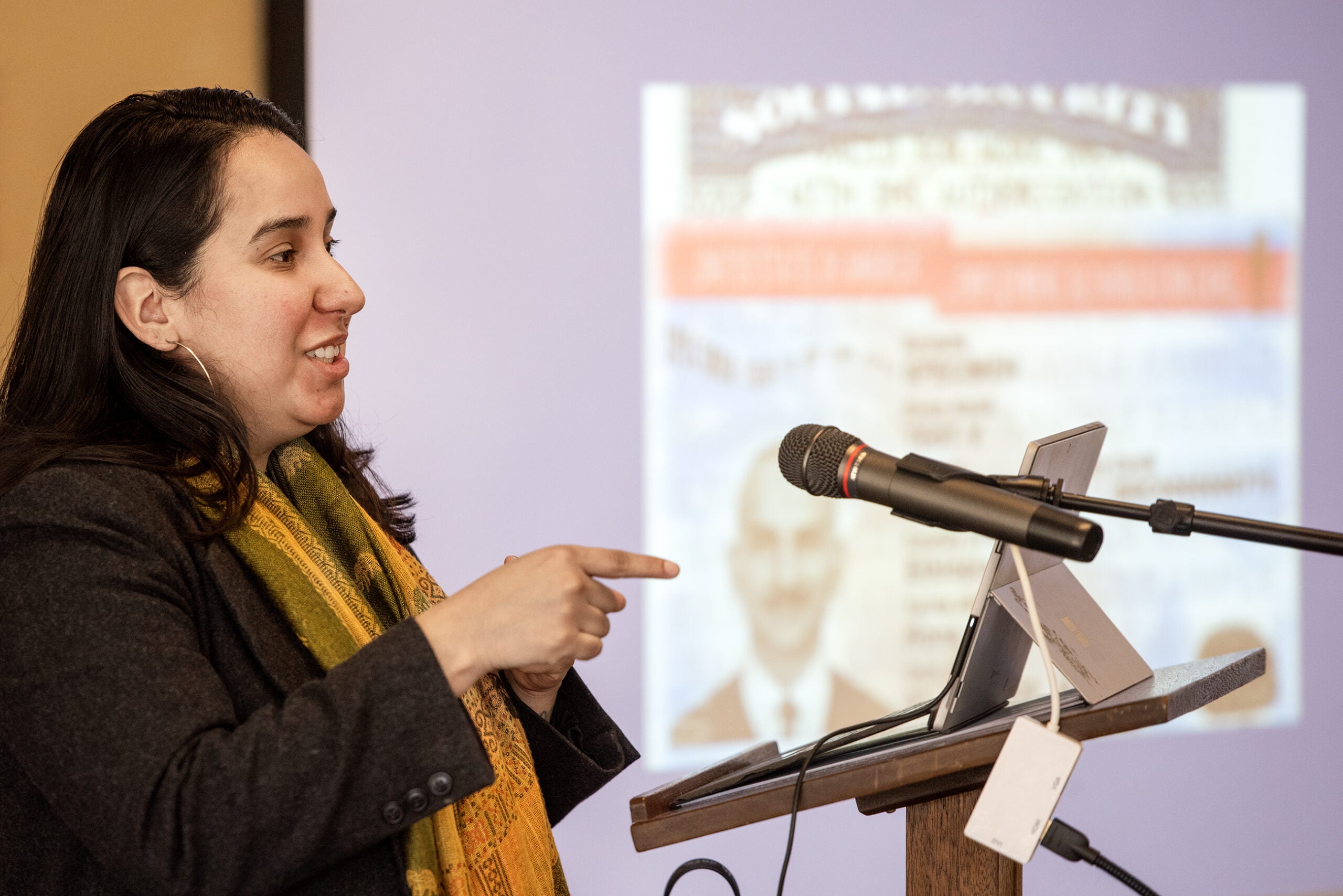
Second Trump term reignites fears over DACA’s future, impact on mixed-status families
Christopher and Olivarez both said the DACA program, and other federal programs giving immigrants temporary protected statuses, could end in the coming years.
Trump previously tried to end the DACA program, but it was upheld in a 5-4 U.S. Supreme Court decision with Chief Justice John Roberts siding with four liberal justices. The current court has a 6-3 conservative majority, meaning Roberts would no longer be the deciding vote.
“It’s (DACA) all but assuredly going to be found unconstitutional by the current Supreme Court,” Christopher said of the DACA program.
Jimenez, the DACA recipient from Racine, said she’s afraid being a participant in the program will make her a target for deportation by the federal government.
“We have to provide, every two years, an updated information application of where we live, our biometrics, our pictures, and they have to be recent pictures,” she said. “They have our entire information. And that’s really where our fear is at. They know who we are. They know we’re undocumented.”
Immigrant rights advocates are also concerned that a mass deportation effort could devastate the estimated 28,000 families in Wisconsin with mixed-immigration status. Those families include households where one spouse may be a U.S. citizen married to someone who doesn’t have permanent legal status, or where the parents of U.S. citizen children lack legal status.
Jimenez said her brother is part of a mixed-status family. She says he is a DACA recipient, his girlfriend is a legal resident and his children are U.S. citizens.
“If he is to be deported, his kids would suffer the most not having their father with them, and my parents, who I fear (for) the most, have no protection,” she said. “They have to work. They have to drive to work. They have to drive without a license.”
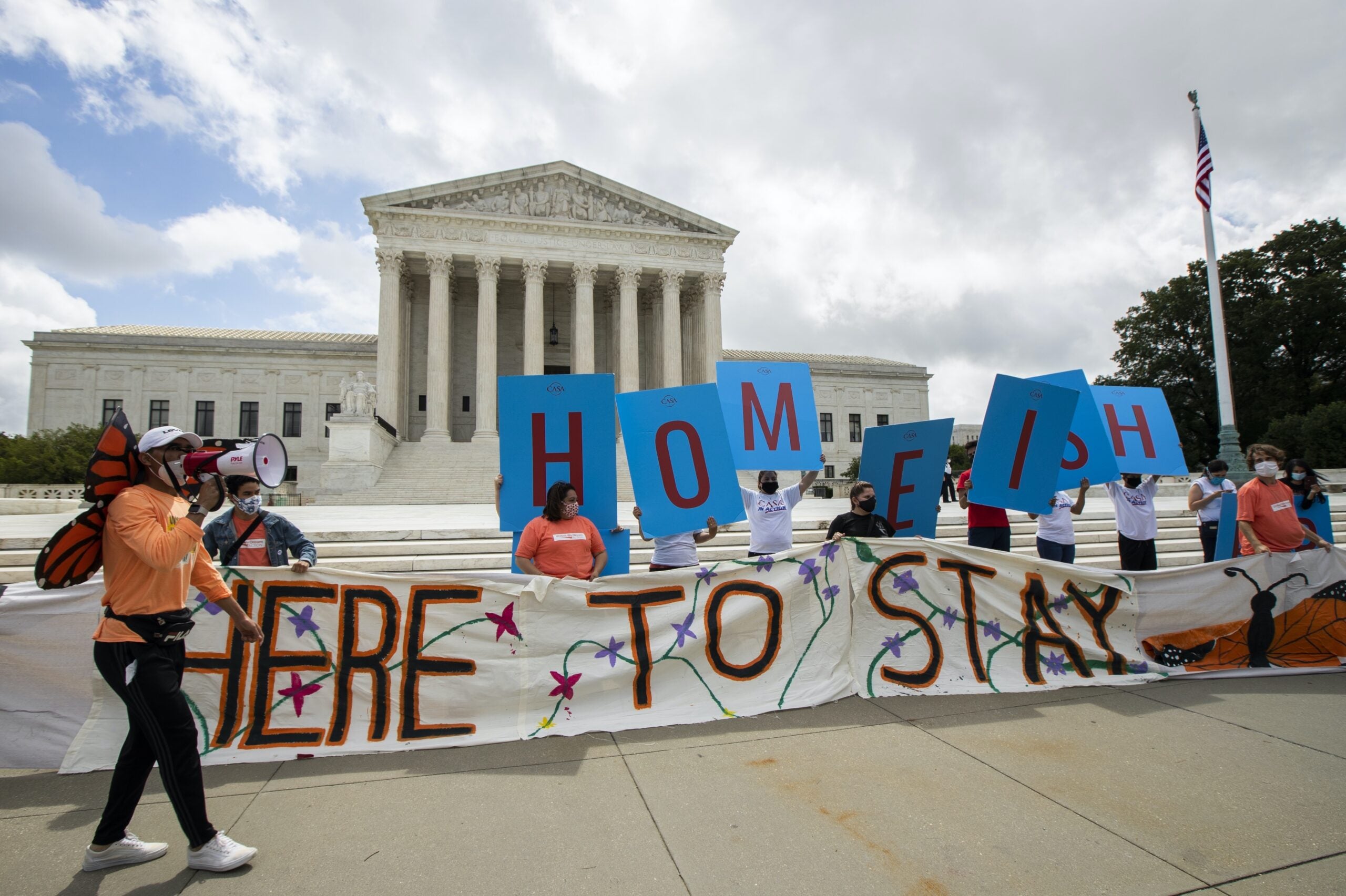
What could a second Trump term mean for asylum seekers in Wisconsin?
Christopher, the immigration attorney from Milwaukee, said individuals seeking asylum in Wisconsin are in the country legally as they wait to make their case to the government that they should be granted asylum in the United States.
Under the last Trump administration, Christopher said the federal government narrowed the qualifications to be granted asylum. He said the previous Trump administration made it so those fleeing cartel or gang violence in their home country did not qualify, and rolled back protections for those fleeing gender-based violence.
If Trump tightens restrictions on the qualifications on asylum again, Christopher said those new restrictions would apply to people already in Wisconsin waiting to make their case to immigration officials.
“You’re not protected by the rules at the time that you apply,” he said. “It’s going to be a major shift.”
Byron Chavez, a 28-year-old asylum seeker from Nicaragua, has been living in Whitewater since 2022. He applied for asylum and is waiting to make his case to the government.
He said he fled government oppression and human rights violations in Nicaragua. Since coming to Wisconsin, Chavez said he’s fallen in love with Whitewater and wants to make it his permanent home.
“The community is very friendly. … You got everything you need and everything is close,” he said. “The diversity you have here, it’s what makes Whitewater a really nice place.”
If he gets an asylum hearing after Trump takes office, Chavez says he’s hopeful the government will hear him out and grant him asylum.
“I’m a little bit more concerned because I think the immigration law will be stricter,” he said. “But other than that, I like to go by the book. I’m doing things the way they should, and hopefully that talks about my desire of being here. I want to do things the right way.”
Wisconsin Public Radio, © Copyright 2025, Board of Regents of the University of Wisconsin System and Wisconsin Educational Communications Board.

